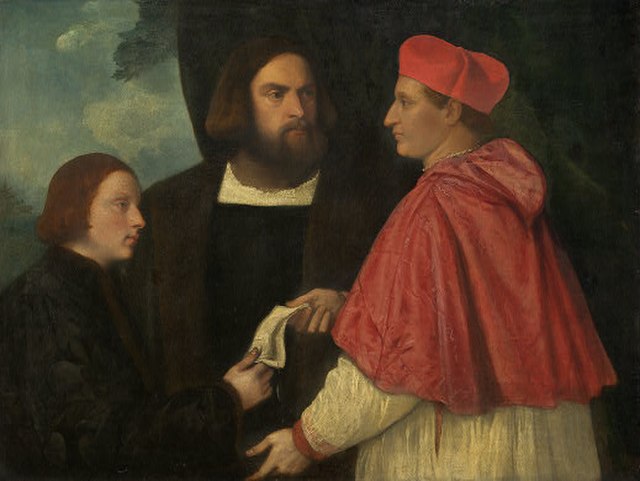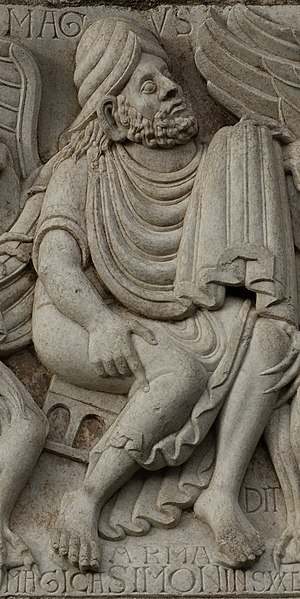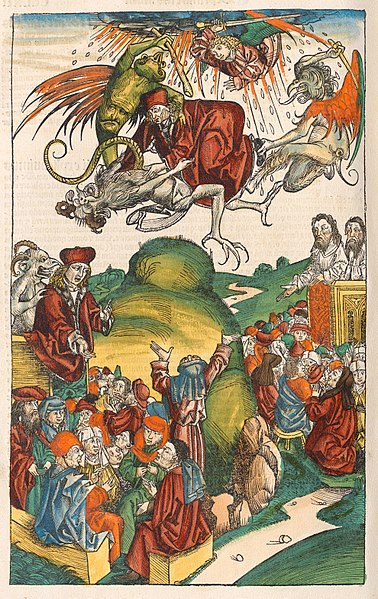Simony is the act of selling church offices and roles or sacred things. It is named after Simon Magus, who is described in the Acts of the Apostles as having offered two disciples of Jesus payment in exchange for their empowering him to impart the power of the Holy Spirit to anyone on whom he would place his hands. The term extends to other forms of trafficking for money in "spiritual things".
Abbot practising simony (France, 12th century)
Girolamo and cardinal Marco Corner investing Marco, abbot of Carrara, with his benefice, Titian, c. 1520
Dante speaks to Pope Nicholas III, committed to the Inferno for his simony, in Gustave Doré's 1861 wood engraving (portrait of the Third Bolgia of the Eighth Circle of Hell)
Simon Magus, also known as Simon the Sorcerer or Simon the Magician, was a religious figure whose confrontation with Peter is recorded in the Acts of the Apostles. The act of simony, or paying for position, is named after Simon, who tried to buy his way into the power of the Apostles.
Relief of Simon Magus at the gate of the Basilica of Saint-Sernin, Toulouse.
Peter's conflict with Simon Magus by Avanzino Nucci, 1620. Simon is on the right, wearing black.
Illustration of the Simonian philosophy
The death of Simon Magus, from the Nuremberg Chronicle







